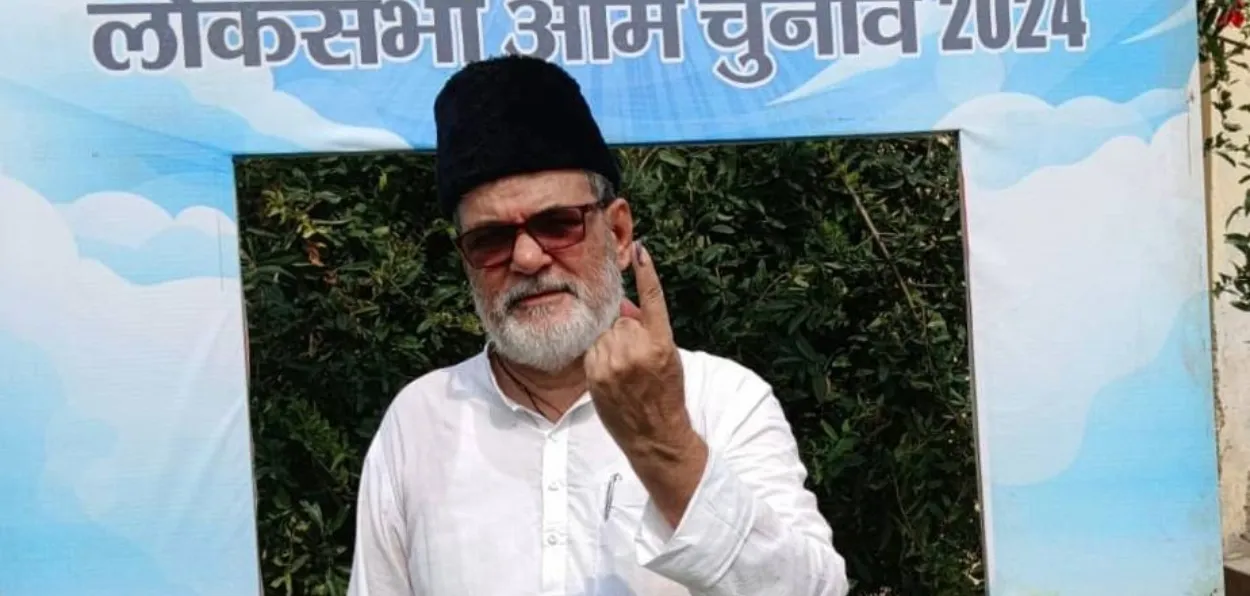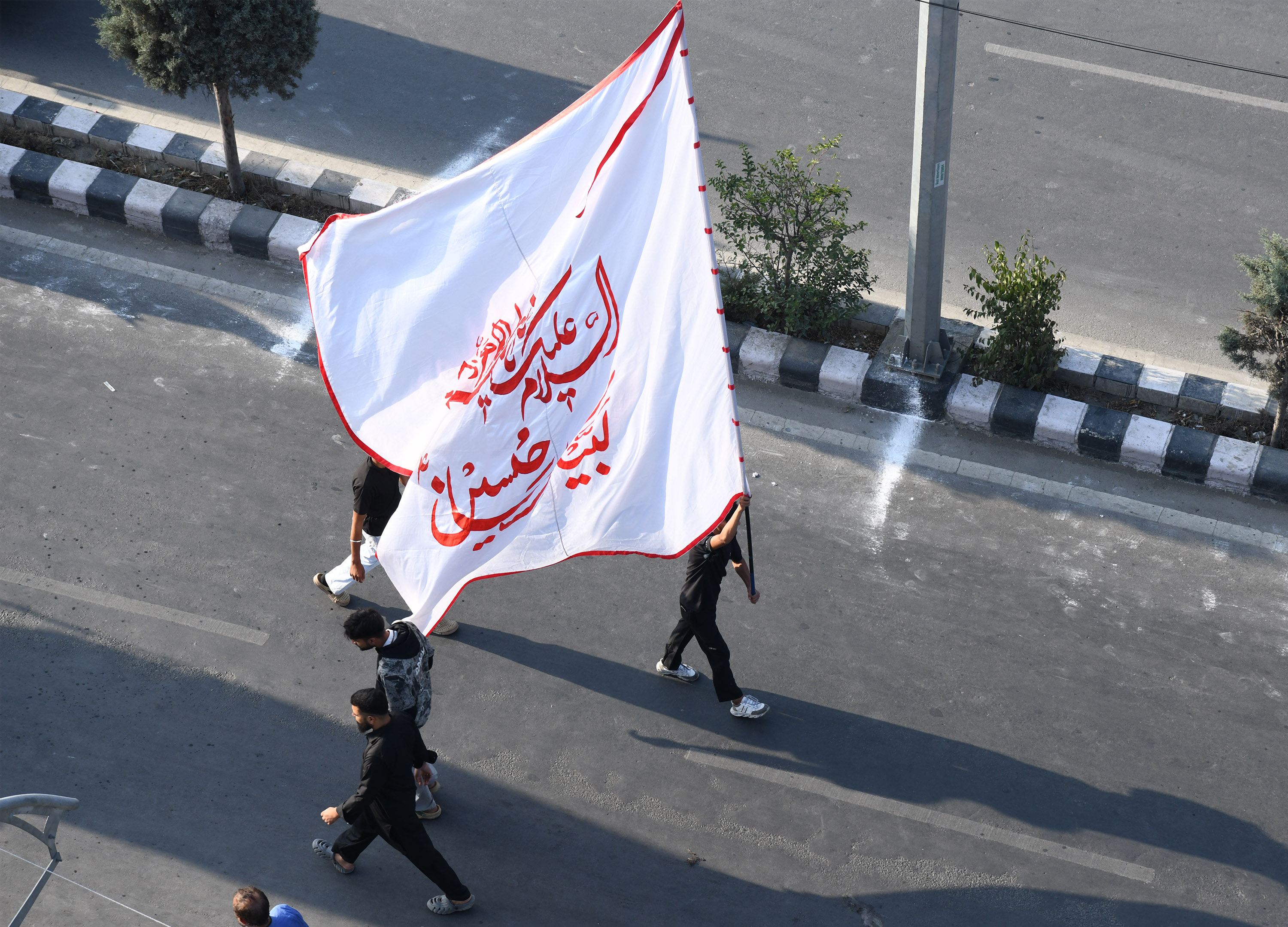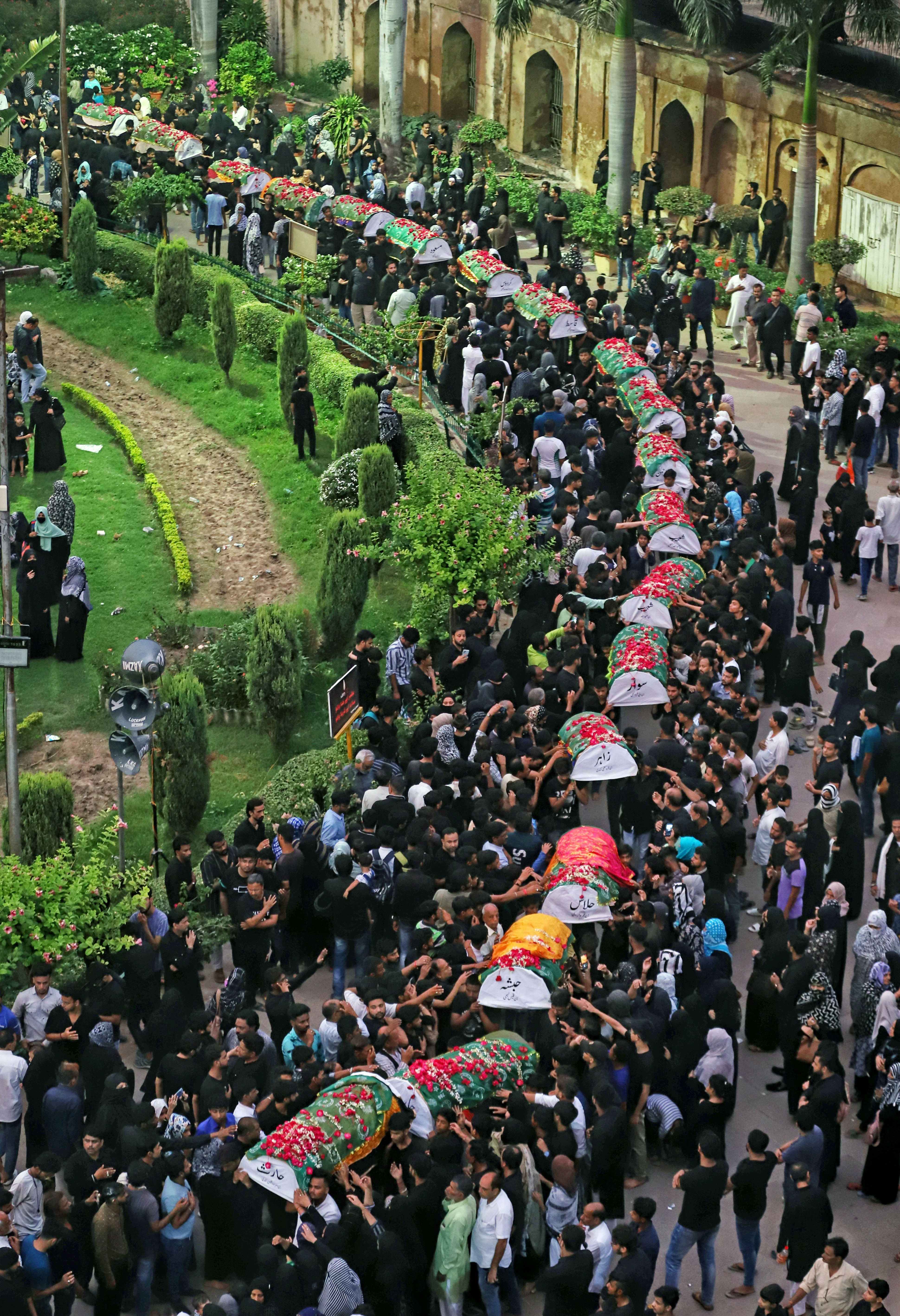
Mehfuz Alam/Patna
While Imam Hussain was at the war front in Karbala (central Iraq), he expressed his desire to come to India. There is historical evidence to support this. Imam Hussain stood up to the oppression of Yazid and when the latter declared war, Imam Hussain is believed to have asked him to make way for him and his small army of 72 men, women, and children for they wanted to go to India.
Today people of all religions in India remember the eventual tragedy that unfolded in the battle of Karbala and pay homage to Imam Hussain.
Speaking to Awaaz the Voice, the famous Shia religious scholar Maulana Amanat Hussain said that Hazrat Imam Hussain once intended to go to India, just before the battle began. He said that Imam Hussain aimed to unite Muslims and let humanity prevail in every nation. "Humanity is above religion and it precedes religion. For this reason, people of all religions respect Hazrat Imam Hussain and consider it their honour to participate in the Muharram procession."
Safety was the greatest message of Hazrat Imam Hussain who was martyred along with 72 of his companions in the field of Karbala for opposing the tyrant. His martyrdom is a war against oppression and a lesson in supporting the oppressed, and the helpless.
.jpg) Muharram procession through Srinagar city
Muharram procession through Srinagar city
According to Maulana Amanat Husain, the land of Bihar has long been an example of communal harmony. On the occasion of Ashura, people of all religions participate in the Muharram procession and share the message of brotherhood and goodwill.
"Especially in Patna, since the time of the Nawabs, Muharram has been specially observed. The characteristic of this city is that people of every religion, be it Hindu, Muslim, Sikh or Christian, participate in it and pay homage to Imam Hussain."
Maulana Amanat Husain said the sacrifice of Imam Hussain tells us never to bow before oppression; take the right decision and fight against him. Others who are not in direct fight with the oppressor must support the oppressed one. This lesson from Imam Hussain's life must be followed by humanity.
He says that Muharram is the first month of the Islamic year and the month of Haram. In this month Muslims are supposed not to fight or get into conflicts.
Also fasting on the 10th day of Muharram called Ashura is considered better than all other fasts after the obligatory fasts of Ramazan. Many Muslims observe three-day fasting from the ninth Muharram as they consider this month of receiving mercy and blessing from Allah., this month was respected earlier and it was commanded to be respected later too. In this month, special care is taken to ensure that no wrongdoing is done.
 Shia mouners in Srinagar, J&K, India
Shia mouners in Srinagar, J&K, India
Maulana Amanat Husain says In Patna people of different religions pay their respects to Imam Hussain and especially when the procession takes place, a large number of Hindus join it generating goodwill.
Maulana Amanat Husain said that after the death of Hazrat Amir Muawiya, his son Yazid became the Caliph. All people except Imam Hussain pledged allegiance to Yazid.
Yezid was adamant about making Imam Hussain submit to his authority. He said only after Imam Hussain pledged his allegiance to him, his caliphate would be secure. On the other hand, Imam Hussain knew that Yazid was not fit to become the Caliph or the leader of Islam. Yazid asked Imam Hussain to pledge his allegiance, Imam Hussain said it was not possible.
According to Maulana Amanat Hussain, Imam Hussain knew Yazid's character and temperament. Yazid was cruel and oppressed others. Imam Hussain was against Yazid's oppression and did not pledge allegiance to him. However, Yazid warned that he would behead Imam Hussain if he didn't follow his command. Imam Hussain rejected it and he traveled from Madinah with some followers and his family comprising 72 men women and children to the field of Karbala.
The Prophet of Islam Muhammad said, "Hussain is from me and I am from Hussain, which means that the role that I have is the role of Hussain." In this way, Imam Hussain refused to bow down to the oppressor and gave a message to the world that no matter how great the oppression is, it will remain oppression and one should choose the right over the falsehood and not the oppression but should help the oppressed.
Maulana Amanat Husain says that Imam Hussain expressed his desire to come to India. This description from Karbala is found in history. He feels that perhaps this is why all Indians pay homage to Imam Hussain. The people of other religions all contribute to keeping the memory of Hussain's martyrdom alive.
 Shia mourners carry 72 coffins as a mark of repsect for those klilled in Battle of Karbala
Shia mourners carry 72 coffins as a mark of repsect for those klilled in Battle of Karbala
Maulana Amanat Husain recommends people read the biography of Imam Hussain to understand the significance of his final act. His biography gives a message of unity and humanity to fight against oppression and support the oppressed.
Imam Hussain's biography makes it clear that one must convey one's message through the strength of his character, not through the sword. Maulana Amanat Hussain said that many times Imam Hussain stopped the war and forbade the shedding of human blood.
According to Maulana Amanat Husain, when he went out in the Muharram procession lets the world know that we are mourning. However, the biggest lesson for individuals is "Do not oppress anyone under any circumstances; never inflict injustice on anyone, never support the oppressor."
Maulana Amanat Husain said that the message of Imam Hussain is to respect a person of any religion, humanity is the greatest thing. He says that today the way people go out dancing and singing in Muharram procession is inappropriate. "Some people join the procession drunk. We should stay away from forbidden things and try to follow the life and lessons of Imam Hussain."
ALSO READ: How Indian Muslims commemorate the martyrdom of Imam Hussain on Ashura
He said that Imam Hussain has taught humanity, and to fight against oppression. It is necessary that while taking lessons from the life of Imam Hussain, we work for the promotion of brotherhood, goodwill, and humanity and stay away from wrong things.
